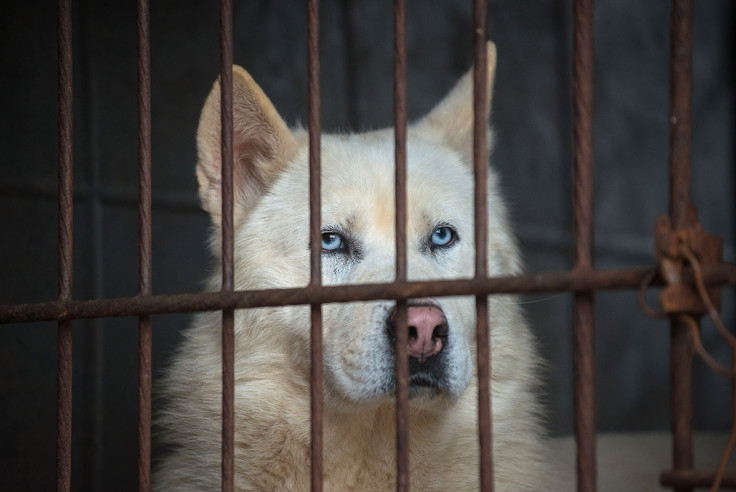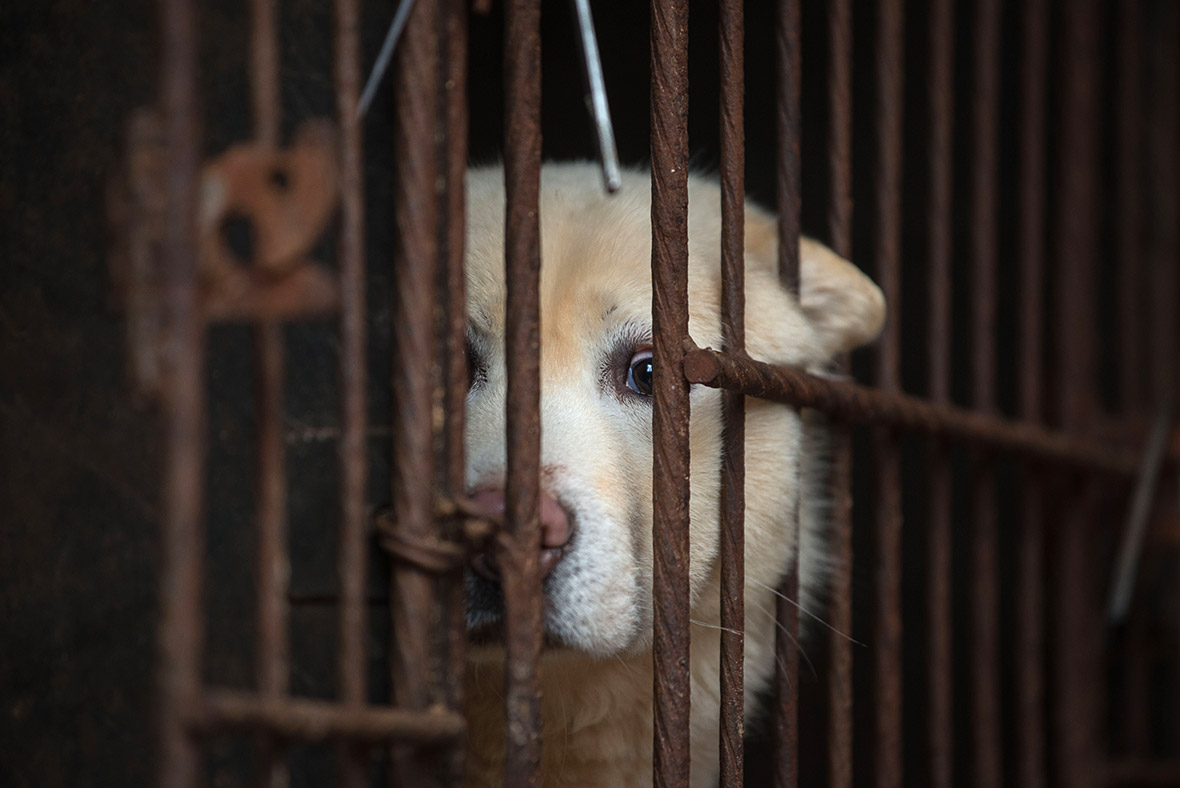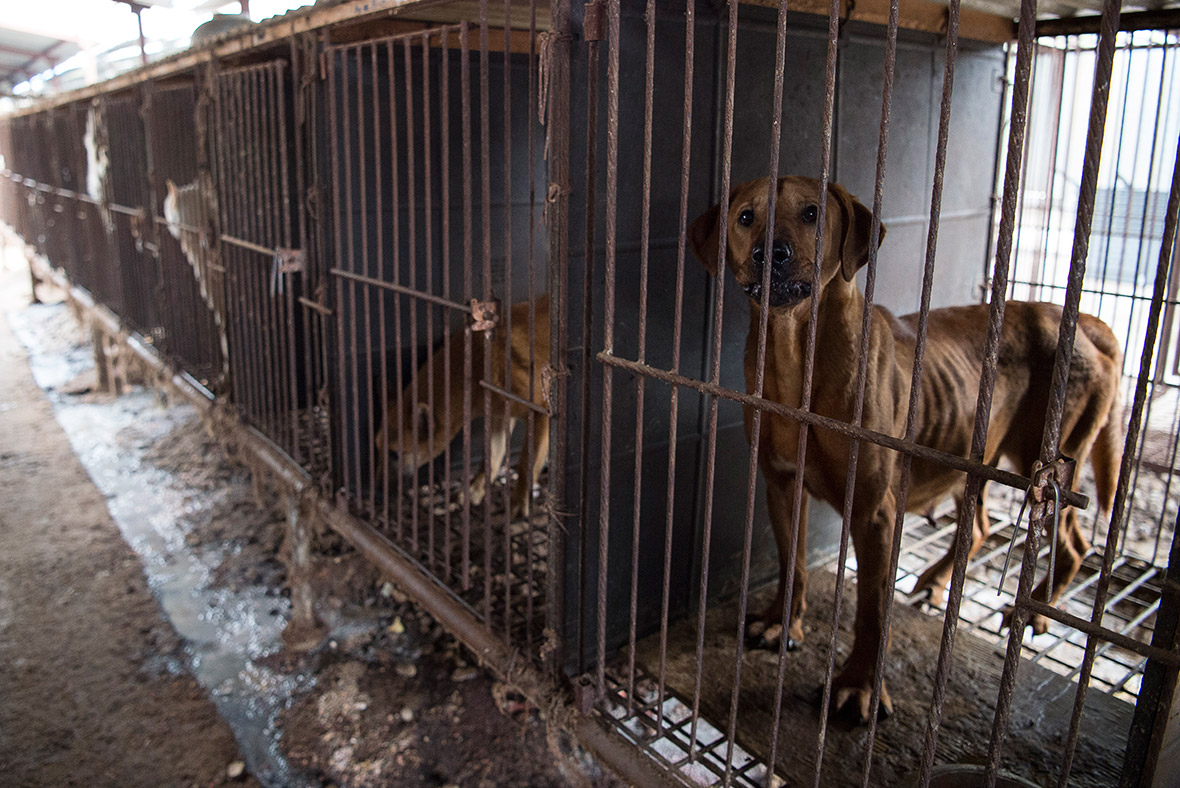South Korea: Dogs destined to be killed and eaten are rescued from dog meat farm
More than 170 dogs that were destined to be killed and eaten have been rescued from a dog meat farm in South Korea. The dogs – which included golden retrievers, Siberian huskies, rottweilers and St Bernards – had been confined in their cages from birth. The farm in Wonju is just one of thousands across the country, where dogs are bred specifically for consumption.

The animals were part of a consignment of 250 dogs and puppies rescued by Humane Society International (HSI). This is the fifth such farm that the charity has closed down as part of its campaign to end the eating of dogs in South Korea. The rescued dogs will be flown to animal shelters and rescue centres in the US and Canada, where they will be put up for adoption.
The owner of the dog farm contacted HSI and said he was happy to get out of the dog meat business. "It's a dying business," he said. "In the past, people ate dogs because there was nothing else to eat but nowadays, young people don't have to eat it. It's becoming weird for people."











HSI points out that most people in South Korea don't regularly eat dogs, and the practice is increasingly falling out of favour with the younger generation. However, during the hottest days of summer – a period known locally as Bok Nal – dog meat stew will be widely consumed even by those who don't normally eat it, in the unfounded belief that it cools the blood. Hundreds of thousands of dogs will be slaughtered at this time, as an estimated 60-80% of the entire year's dog meat is eaten in just two months, most often at one of South Korea's thousands of dedicated dog meat restaurants.
Up to three million dogs are thought to endure extreme deprivation on farms every year, kept in small, barren wire cages without any comfort or proper care, until the day they are killed, usually by electrocution. Dog farmers intensively breed dogs throughout the year, but often wait to sell them for slaughter at Bok Nal when they will fetch the highest price. A large dog can fetch around £120 each, with a bowl of dog meat stew selling for as little as £3-£6.
Most people in South Korea never visit a dog meat farm and are unaware of the suffering experienced by the dogs. There is also a widespread misconception that farmed dogs are somehow different in nature to companion dogs, a myth that Humane Society International is keen to dispel. On every farm closed so far by HSI, a mixture of breeds has been discovered, from large mastiffs to tiny chihuahuas. Alerting Koreans to the fact that these are no different from the dogs we live with at home is a key part of HSI's message.













HSI is working in countries across Asia to end the grisly dog meat trade. Efforts include: intercepting trucks crammed with dogs headed for slaughter in China; providing expertise to train officials for improved enforcement of laws and humane rabies elimination in Vietnam; and helping dog meat farmers in South Korea transition to more humane ways of making a living.
© Copyright IBTimes 2024. All rights reserved.






